NewsBeat
Mostly civilians died in IDF attack on Lebanon village, BBC finds
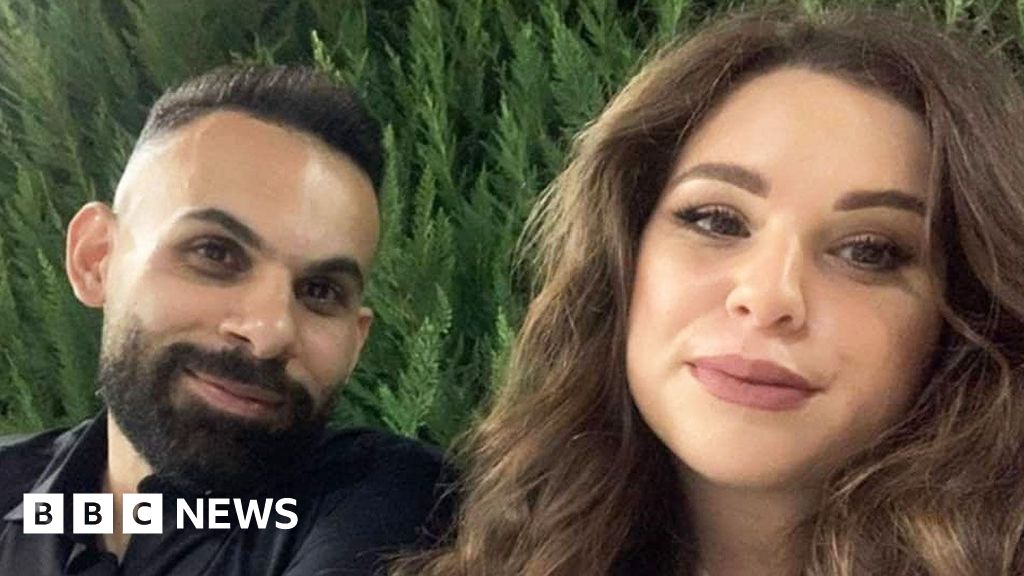
Senior international investigations correspondent, BBC World Service
 BBC
BBCJulia Ramadan was terrified – the war between Israel and Hezbollah was escalating and she’d had a nightmare that her family home was being bombed. When she sent her brother a panicked voice note from her apartment in Beirut, he encouraged her to join him in Ain El Delb, a sleepy village in southern Lebanon.
“It’s safe here,” he reassured her. “Come stay with us until things calm down.”
Earlier that month, Israel intensified air campaigns against Hezbollah in Lebanon, in response to escalating rocket attacks by the Iran-backed armed group which had killed civilians, and displaced tens of thousands more from homes in northern Israel.
Ashraf was confident their family’s apartment block would be a haven, so Julia joined him. But the next day, on 29 September, it was subject to this conflict’s deadliest single Israeli attack. Struck by Israeli missiles, the entire six-storey building collapsed, killing 73 people.
The Israel Defense Forces (IDF) says the building was targeted because it was a Hezbollah “terrorist command centre” and it “eliminated” a Hezbollah commander. It added that “the overwhelming majority” of those killed in the strike were “confirmed to be terror operatives”.
But a BBC Eye investigation verified the identity of 68 of the 73 people killed in the attack and uncovered evidence suggesting just six were linked to Hezbollah’s military wing. None of those we identified appeared to hold a senior rank. The BBC’s World Service also found that the other 62 were civilians – 23 of them children.
Among the dead were babies only a few months old, like Nouh Kobeissi in apartment -2B. In apartment -1C, school teacher Abeer Hallak was killed alongside her husband and three sons. Three floors above, Amal Hakawati died along with three generations of her family – her husband, children and two granddaughters.
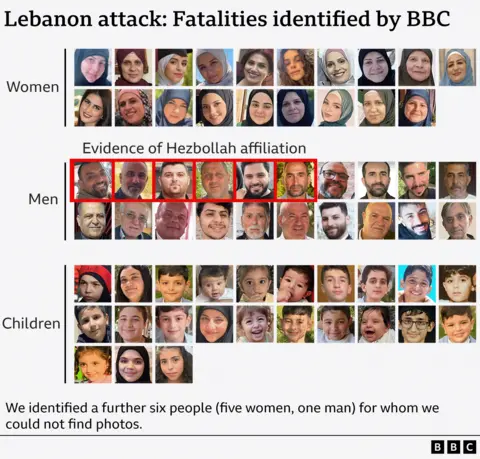
Ashraf and Julia had always been close, sharing everything with each other. “She was like a black box, holding all my secrets,” he says.
On the afternoon of 29 September, the siblings had just returned home from handing out food to families who had fled the fighting. Hundreds of thousands of people in Lebanon had been displaced by the war.
Ashraf was in the shower, and Julia was sitting in the living room with their father, helping him upload a video to social media. Their mother, Janan, was in the kitchen, clearing up.
Then, without warning, they heard a deafening bang. The entire building shook, and a massive cloud of dust and smoke poured into their apartment.
“I shouted, ‘Julia! Julia!,’” says Ashraf.
“She replied, ‘I’m here.’
“I looked at my dad, who was struggling to get up from the sofa because of an existing injury to his leg, and saw my mother running toward the front door.”
Julia’s nightmare was playing out in real life.
“Julia was hyperventilating, crying so hard on the sofa. I was trying to calm her down and told her we needed to get out. Then, there was another attack.”
Video footage of the strike, shared online and verified by the BBC, reveals four Israeli missiles flying through the air towards the building. Seconds later, the block collapses.
Ashraf, along with many others, was trapped under the rubble. He began calling out, but the only voice he could hear was that of his father, who told him he could still hear Julia and that she was alive. Neither of them could hear Ashraf’s mother.
Ashraf sent a voice note to friends in the neighbourhood to alert them. The next few hours were agonising. He could hear rescuers sifting through the debris – and residents wailing as they discovered loved ones dead. “I just kept thinking, please, God, not Julia. I can’t live this life without Julia.”
Ashraf was finally pulled from the rubble hours later, with only minor injuries.
He discovered his mother had been rescued but died in hospital. Julia had suffocated under the rubble. His father later told him Julia’s last words were calls for her brother.
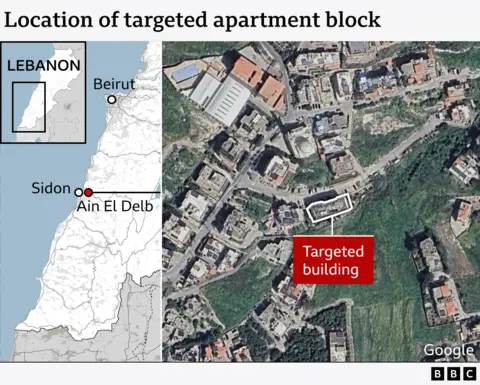
In November, a ceasefire deal was agreed between Israel and Hezbollah with the aim of ending the conflict. The deal gives a 60-day deadline for Israeli forces to withdraw from southern Lebanon and for Hezbollah to withdraw its forces and weapons north of the Litani River. As this 26 January deadline approaches, we sought to find out more about the deadliest single Israeli attack on Lebanon in years.
In the apartment below Julia and Ashraf’s, Hawraa and Ali Fares had been hosting family members displaced by the war. Among them was Hawraa’s sister Batoul, who, like Julia, had arrived the previous day – with her husband and two young children. They had fled intense bombardment near the Lebanon-Israel border, in areas where Hezbollah has a strong presence.
“We hesitated about where to go,” says Batoul. “And then I told my husband, ‘Let’s go to Ain El Delb. My sister said their building was safe and that they couldn’t hear any bombing nearby.’”
Batoul’s husband Mohammed Fares was killed in the Ain El Delb attack. A pillar fell on Batoul and her children. She says no-one responded to her calls for help. She finally managed to lift it alone, but her four-year-old daughter Hawraa had been fatally crushed. Miraculously, her baby Malak survived.
 Fares family
Fares familyThree floors below Batoul lived Denise and Moheyaldeen Al-Baba. That Sunday, Denise had invited her brother Hisham over for lunch.
The impact of the strike was brutal, says Hisham.
“The second missile slammed me to the floor… the entire wall fell on top of me.”
He spent seven hours under the rubble.
“I heard a voice far away. People talking. Screams and… ‘Cover her. Remove her. Lift the stone. He’s still alive. It’s a child. Lift this child.’ I mean… Oh my God. I thought to myself, I’m the last one deep underground. No-one will know about me. I will die here.”
When Hisham was finally rescued, he found his niece’s fiance waiting to hear if she was alive. He lied to him and told him she was fine. They found her body three days later.
Hisham lost four members of his family – his sister, brother-in-law and their two children. He told us he had lost his faith and no longer believes in God.
To find out more about who died, we have analysed Lebanese Health Ministry data, videos, social media posts, as well as speaking to survivors of the attack.
We particularly wanted to interrogate the IDF’s response to media – immediately following the attack – that the apartment block had been a Hezbollah command centre. We asked the IDF multiple times what constituted a command centre, but it did not give clarification.
So we began sifting through social media tributes, gravesites, public health records and videos of funerals to determine whether those killed in the attack had any military affiliation with Hezbollah.
We could only find evidence that six of the 68 dead we identified were connected to Hezbollah’s military wing.
Hezbollah memorial photos for the six men use the label “Mujahid”, meaning “fighter”. Senior figures, by contrast, are referred to as “Qaid”, meaning “commander” – and we found no such labels used by the group to describe those killed.
We asked the IDF whether the six Hezbollah fighters we identified were the intended targets of the strike. It did not respond to this question.
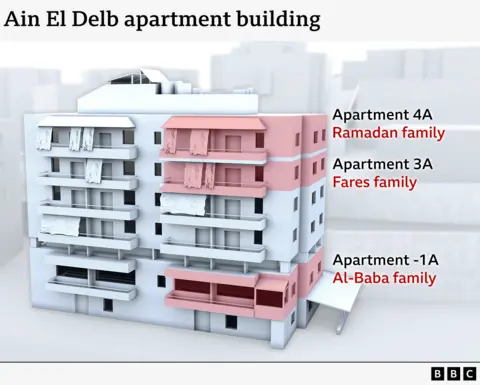
One of the Hezbollah fighters we identified was Batoul’s husband, Mohammed Fares. Batoul told us that her husband, like many other men in southern Lebanon, was a reservist for the group, though she added that he had never been paid by Hezbollah, held a formal rank, or participated in combat.
Israel sees Hezbollah as one of its main threats and the group is designated a terrorist organisation by Israel, many Western governments and Gulf Arab states.
But alongside its large, well-armed military wing, Hezbollah is also an influential political party, holding seats in Lebanese parliament. In many parts of the country it is woven into the social fabric, providing a network of social services.
In response to our investigation, the IDF stated: “The IDF’s strikes on military targets are subject to relevant provisions of international law, including taking feasible precautions, and are carried out after an assessment that the expected collateral damage and civilian casualties are not excessive in relation to the military advantage expected from the strike.”
It had earlier also told the BBC it had executed “evacuation procedures” for the strike on Ain El Delb, but everyone we spoke to said they had received no warning.
UN experts have raised concerns about the proportionality and necessity of Israeli air strikes on residential buildings in densely populated areas in Lebanon.
This pattern of targeting entire buildings – resulting in significant civilian casualties – has been a recurring feature of Israel’s latest conflict with Hezbollah, which began when the group escalated rocket attacks in response to Israel’s war in Gaza.
Between October 2023 and November 2024, Lebanese authorities say more than 3,960 people were killed in Lebanon by Israeli forces, many of them civilians. Over the same time period, Israeli authorities say at least 47 civilians were killed by Hezbollah rockets fired from southern Lebanon. At least 80 Israeli soldiers were also killed fighting in southern Lebanon or as a result of rocket attacks on northern Israel.
The missile strike in Ain El Delb is the deadliest Israeli attack on a building in Lebanon for at least 18 years.
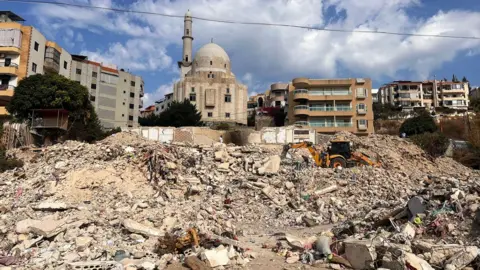 Scarlett Barter / BBC
Scarlett Barter / BBCThe village remains haunted by its impact. When we visited, more than a month after the strike, a father continued to visit the site every day, hoping for news of his 11-year-old son, whose body had yet to be found.
Ashraf Ramadan, too, returns to sift through the rubble, searching for what remains of the memories his family built over the two decades they lived there.
He shows me the door of his wardrobe, still adorned with pictures of footballers and pop stars he once admired. Then, he pulls a teddy bear from the debris and tells me it was always on his bed.
“Nothing I find here will make up for the people we lost,” he says.
Additional reporting by Scarlett Barter and Jake Tacchi
Politics
Illegal migrants coming to Britain should be ‘put in camps on a west coast island’, Lowe claims
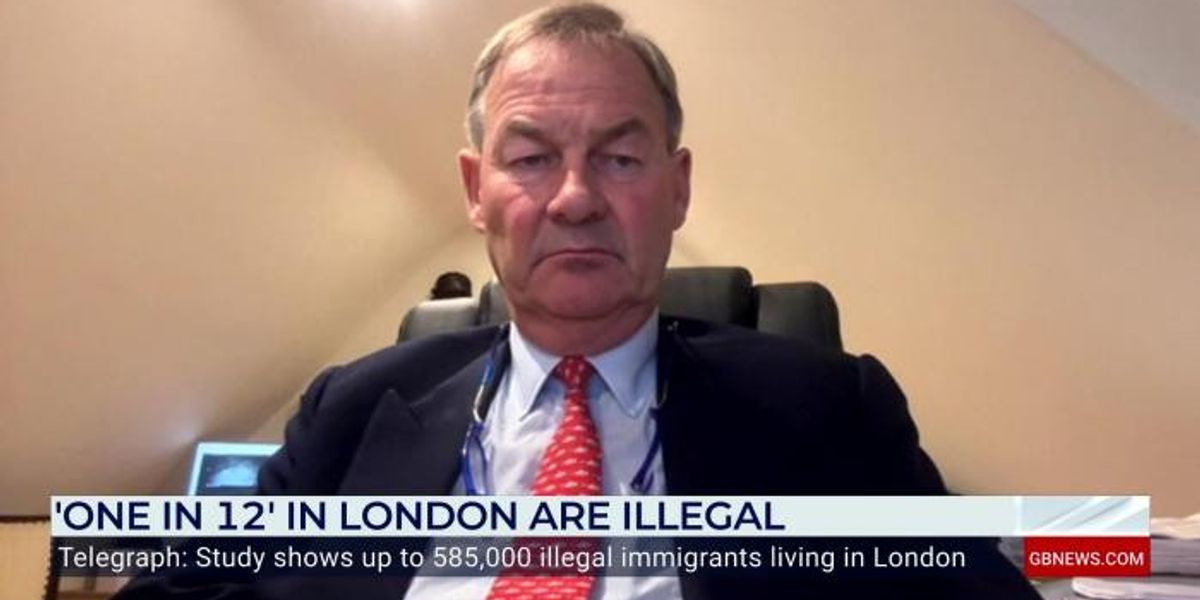

Reform UK MP Rupert Lowe has called for a “national emergency” to be declared over illegal migration, suggesting authorities should “round people up and deport” those in the country unlawfully.
Speaking on GB News, Lowe urged for a hardline approach similar to measures being taken in the United States.
NewsBeat
Badenoch accused of political opportunism over Labour Prevent criticism
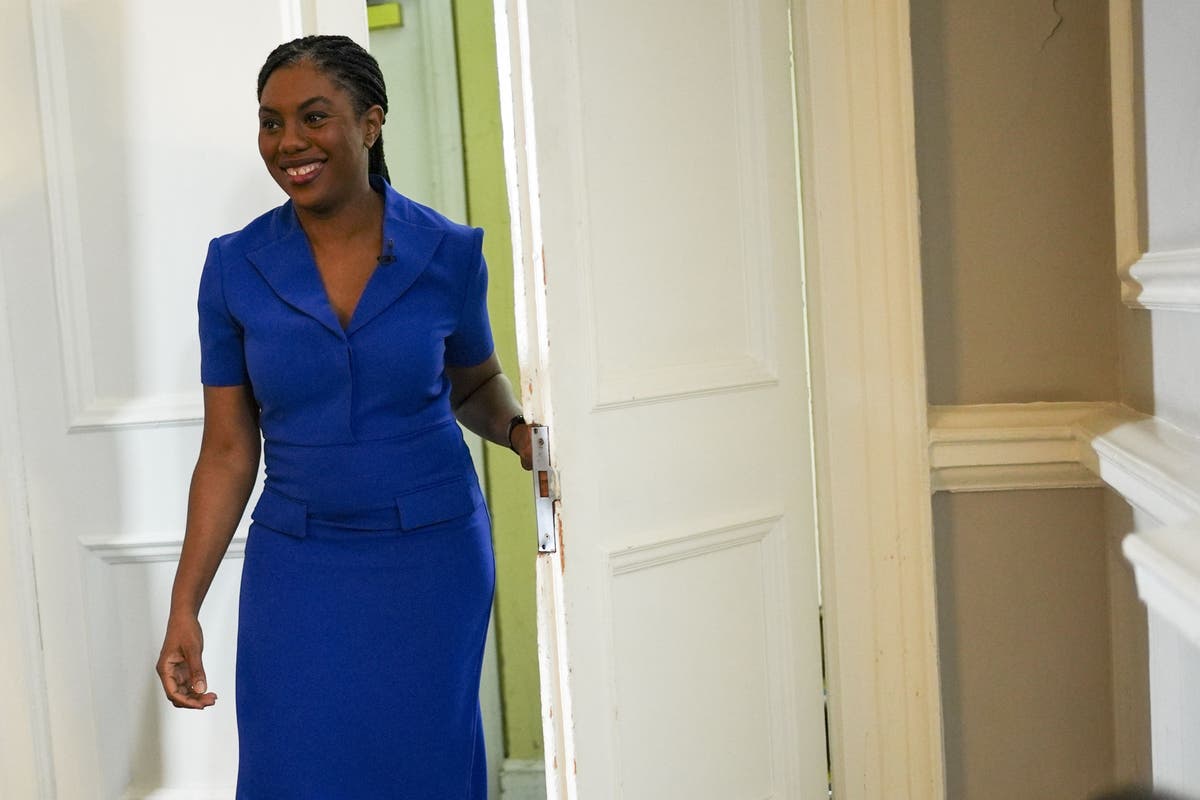
Kemi Badenoch has been accused of political opportunism for criticising Labour politicians for suggesting counter-terror programme Prevent could alienate communities, having herself co-written a report expressing the same concerns.
The Tory leader signed off a report in 2015 that concluded Prevent was “subject to accusations of police heavy-handedness” and warned “the public must not be the forgotten partner in the fight against extremism”.
But, despite having backed the report and its findings, Ms Badenoch on Tuesday attacked Sir Keir Starmer and Yvette Cooper over Labour’s 2019 general election manifesto, which said Prevent has the “potential to alienate communities”.

Ms Badenoch said: “When the Conservatives were trying to toughen the Prevent anti-extremism programme, Starmer and Cooper were running for office on manifestos worried about Prevent ‘alienating communities’.”
But Ms Badenoch was a member of the London assembly’s police and crime committee in 2015 and one of eight members who authored a 50-page report entitled Preventing extremism in London.
The report said Prevent was “subject to accusations of police heavy-handedness and spying” and that “it has had a troubled history, which has led to it being considered by some as a ‘damaged’ brand, and viewed with suspicion by others”.
“Community engagement is critical to the success of Prevent,” the report went on, noting the risk that “the current ‘top down’ approach to Prevent delivery makes it difficult to engage citizens”.

Concluding, the report said “the public must not be the forgotten partner in the fight against extremism. Community engagement is shown to work, but is also the hardest element to achieve.”
Green peer Jenny Jones, who was a fellow member on the committee at the time, accused Ms Badenoch of political opportunism.
She told The Guardian, which unearthed the report: “As a member of the London assembly, Kemi co-authored a scrutiny report in 2015 which recognised the shortcomings and possible downsides of the Prevent strategy, including the possible alienation of communities, but apparently did nothing to address them when in government.”
Another committee source said Ms Badenoch backed the report “in full”, with no mention of it being “woke”.
The Prevent scheme has faced renewed scrutiny after failing to stop a series of killings in recent years, including the mass stabbing of young girls at a dance class in Southport by Axel Rudakubana, who was referred to Prevent three times before carrying out the attack.
The killer of former Conservative MP Sir David Amess was also referred to the Prevent programme before the attack and his daughter has called for an inquiry into the programme.
Katie Amess said Prevent was not “foiling any terrorist attacks, it is allowing people to commit these crimes”.
She added: “I have been pushing and pushing and pushing for an inquiry from the Conservative government and from, now, the Labour Government.”
NewsBeat
Business secretary hints UK could join European trade area | Politics News
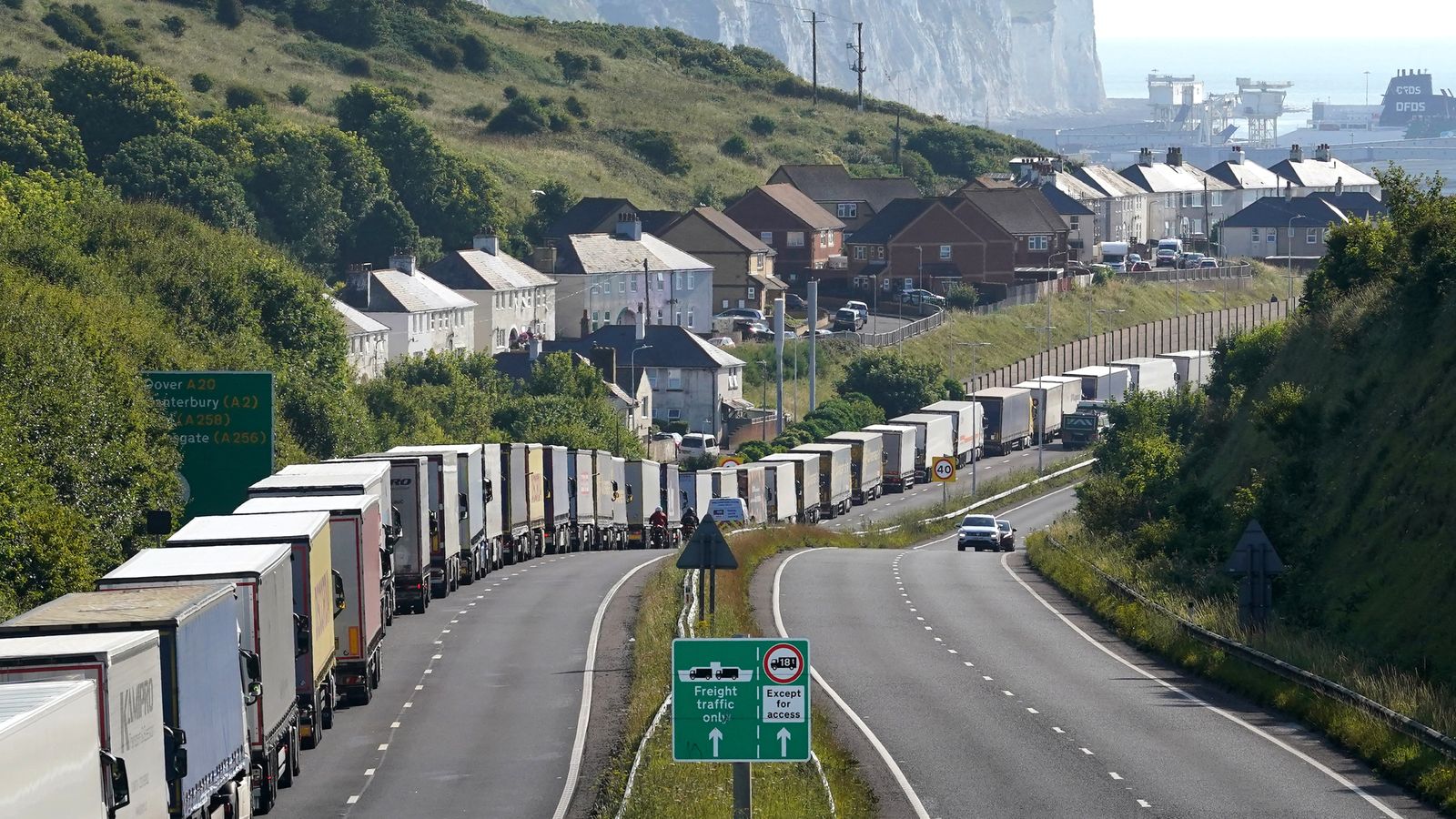
The government has hinted it is open to joining a tariff-free trading scheme as part of its plan to “reset” its relationship with Europe.
Business Secretary Jonathan Reynolds suggested that joining the Pan-Euro-Mediterranean Convention (PEM) could be acceptable as it “is not a customs union”.
Politics latest: Minister ‘hopes’ Southport killer dies in prison
The cabinet minister was speaking to the BBC following a meeting on Thursday with Maros Sefcovic, the EU’s trade commissioner responsible for post-Brexit negotiations.
Mr Sefcovic had earlier told the broadcaster the EU would consider the UK joining the PEM, which allows for tariff-free trade of goods across Europe as well as some North African and Levantine nations.
Mr Reynolds described his comments as “incredibly positive” and “helpful”.
He added: “We can improve the terms of trade with the EU in a way which doesn’t revisit customs unions or single markets or the arguments of Brexit, and we can do that whilst pursuing closer trade links around the world.”
Mr Reynolds also declined to rule out a deal on food and farm products that would involve mirroring EU rules, known as “dynamic alignment”, saying this too didn’t cross any of the government’s “red lines”.
Sir Keir Starmer has ruled out a return to the customs union or single market as part of his ambition for closer ties with Europe following the fractious post-Brexit years.
Labour’s 2024 manifesto instead pledged to “negotiate a veterinary agreement to prevent unnecessary border checks and help tackle the cost of food”. However, details of this have remained vague.
Mr Reynolds’ comments go further than Downing Street yesterday, when a spokesperson said the government did not “currently” have plans to join the PEM and would not “provide a running commentary”.
The British Chamber of Commerce (BCC) told Sky News they would support the move, saying their research “indicates it would have majority support among UK businesses who trade in the European region”.
Read More:
Badenoch says Tories made ‘mistakes’ on Brexit
Labour MPs told to back EU youth mobility scheme
Head of trade policy, William Bain, said: “Joining would reduce paperwork and costs for many UK firms as it would align rules and regulations on both sides in relation to the sourcing or components and raw materials used in exports.
“This would cover a wide range of markets for our exporters and give greater flexibility across supply and sourcing chains. “
He added that new PEM rules are due to apply in 2026, which could make the transition easier, and recommended a cost-benefit analysis of the deal beforehand “as the advantages will vary by sector”.
The Lib Dems have also been pushing for closer ties with Europe, amid looming concerns over potential Trump tariffs.
Party leader Sir Ed Davey, who ultimately wants a return to the customs union, said ruling out the PEM proposal would be an “act of economic negligence”.
But on the other end of the political spectrum, the Conservatives accused Labour of “bending the knee” to the bloc.
Dame Priti Patel, the shadow foreign secretary, said: “These latest reports that the government might shackle us to the European Union are deeply concerning, and once again make clear that Keir Starmer and his chums are all too happy to put their ideology ahead of our national interest, no matter the cost.”
Politics
Keir Starmer urged to ‘declare national emergency’ on illegal migration after shock London figures: ‘Deport, deport, deport!’
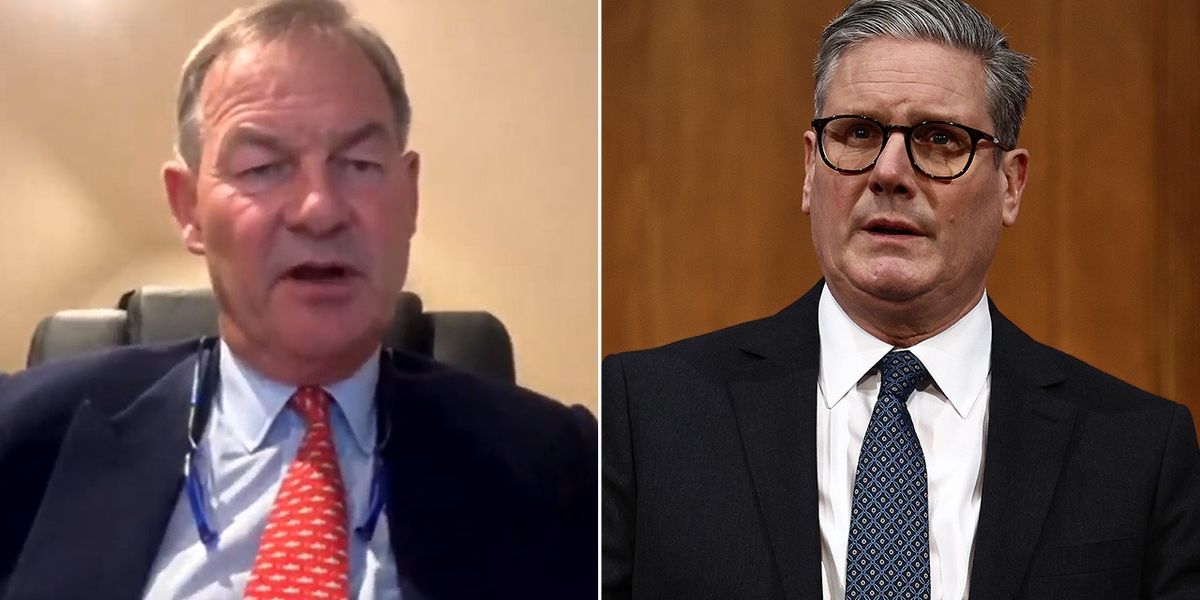
Reform UK MP Rupert Lowe has called for a “national emergency” to be declared over illegal migration, suggesting authorities should “round people up and deport” those in the country unlawfully.
Speaking on GB News, Lowe urged for a hardline approach similar to measures being taken in the United States.
“We have to declare a national emergency, rather like Trump’s doing, and we have to then be actually prepared to take hard decisions and deport, deport, deport,” he said.
The Reform UK politician criticised the current Labour Government’s handling of immigration, claiming the Prime Minister is “up to his neck in this”.
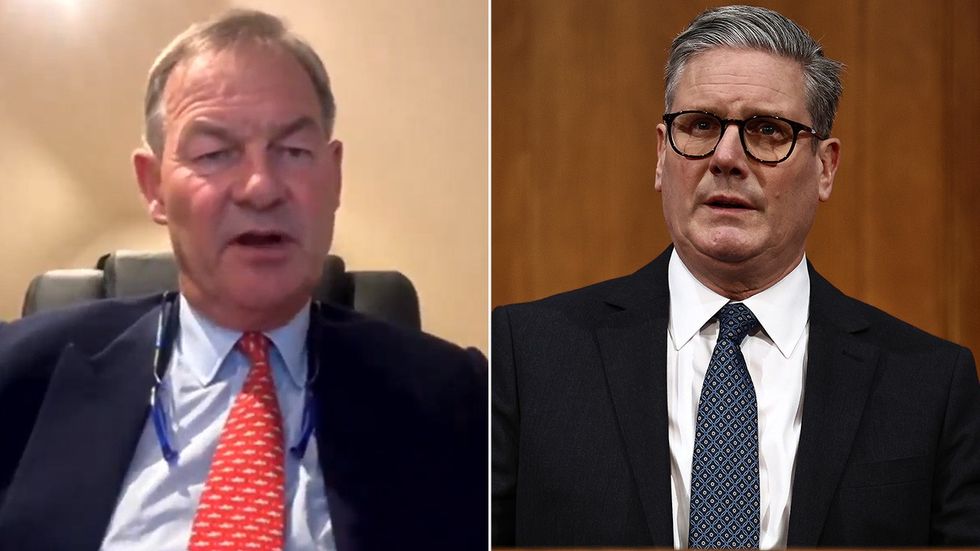
Rupert Lowe demanded that the Prime Minister declare a ‘national emergency’ on illegal migration
GB News / PA
“If it means we have to round people up and deport, and that’s what we have to do,” Lowe stated.
A confidential report commissioned by Thames Water has revealed that as many as one in 12 Londoners may be living in the capital illegally.
The study, obtained through a Freedom of Information request, suggests up to 585,000 illegal migrants are currently residing in London.
Shadow Home Secretary Chris Philp called the reported figures “deeply alarming”.
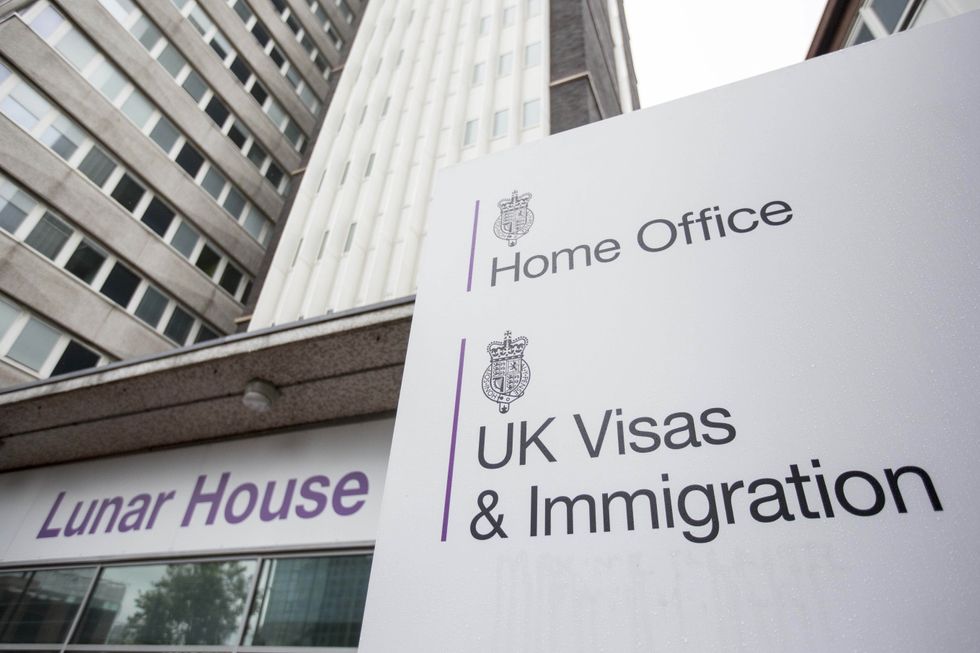 The Home Office, responding to The Telegraph’s findings, hailed how it had ‘removed 16,400 illegal migrants in just six months’PA
The Home Office, responding to The Telegraph’s findings, hailed how it had ‘removed 16,400 illegal migrants in just six months’PA
Lowe outlined proposals for dealing with illegal migrants, suggesting they should be housed in “tented camps” on a UK island.
LATEST DEVELOPMENTS:
“Put them on a West Coast island with a limited, uncomfortable tented camp and minimal food, and encourage them then to go back to where they came from and apply to come back legally,” he said.
The Reform UK MP claimed most arrivals are economic migrants rather than asylum seekers.
He criticised the current immigration system as “weak,” suggesting much of the process relies on applicants’ own statements.
Lowe expressed concern about voting rights, stating: “What worries me is, after six years if we’re not very careful, these people have full voting rights.”
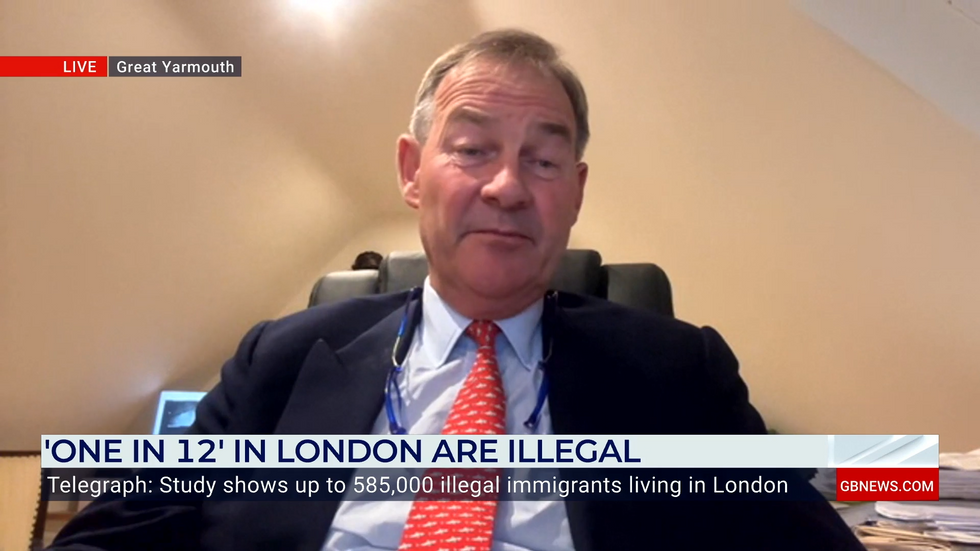
Lowe told GB News that migrants could be housed on a ‘UK island’
GB News
He pointed to Australia’s approach as a model to follow. “The Australians have shown us what to do. You only have to look. They stop the boats coming, and then people realise it’s a waste of time, spending whatever it is 500 euros to get here,” he said.
Lowe called for Britain to exit various international treaties beyond the ECHR to “take back control of our own borders.”
A Home Office spokesman said: “This Government is strengthening global partnerships and rooting out the criminal gangs who profit from small boat crossings which threaten lives.
“We have also removed 16,400 illegal migrants in just six months, the highest figure in half a decade, making it clear that those who arrive illegally will be returned.”
NewsBeat
Hugh Grant backs Prince Harry’s call for fresh police investigation into Rupert Murdoch’s media empire
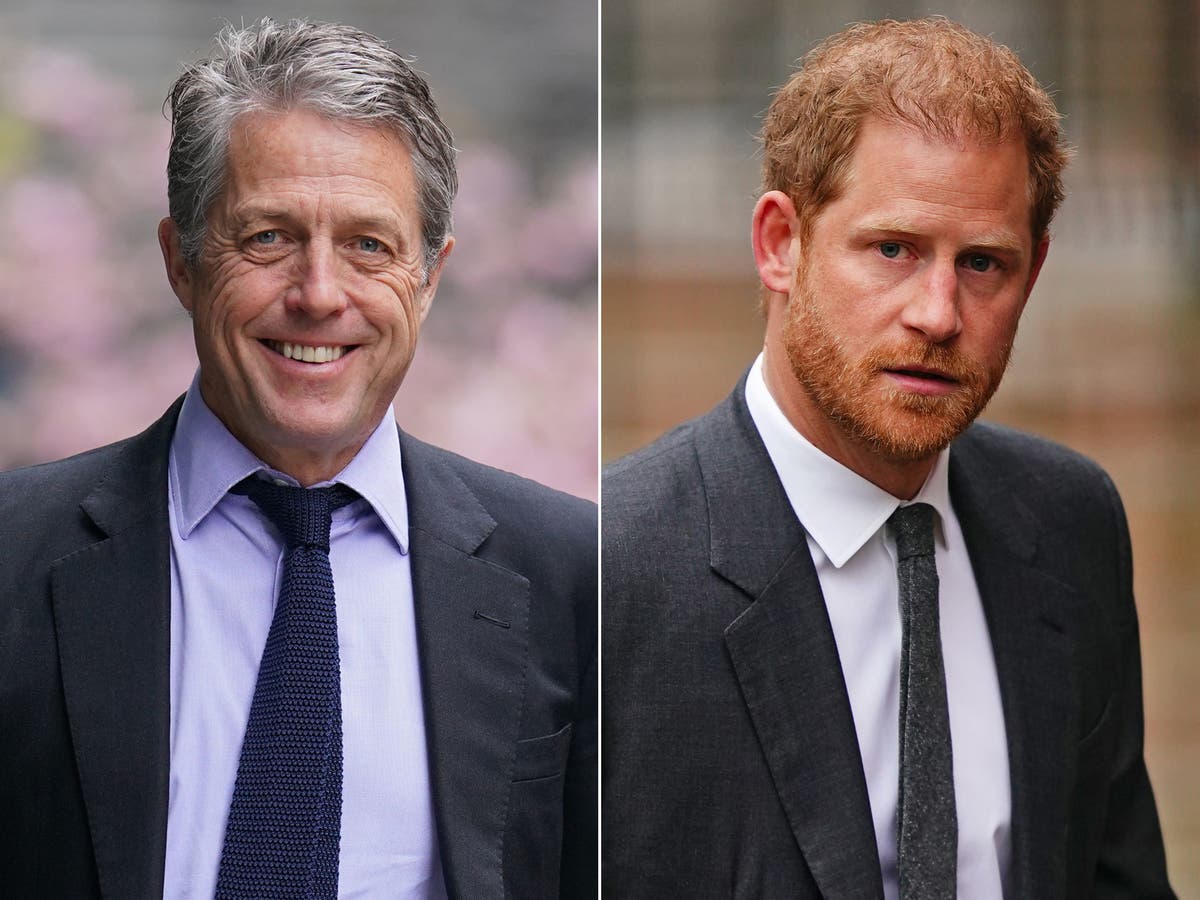
Hugh Grant has backed Prince Harry’s call for a fresh police investigation into Rupert Murdoch’s media empire.
The actor called on Keir Starmer to show ‘leadership’ and stop ‘criminal abuse by big corporations’ after the Prince won a multi-million pound settlement this week over phone hacking claims against The Sun newspaper.
Mr Grant accepted a large settlement from Murdoch’s News Group Newspapers (NGN) last year after dropping his own claim of being illegally targeted by The Sun.

Prince Harry’s settlement came after NGN admitted for the first time that The Sun had been involved in illegal intrusion.
In the past it had said it was restricted to the News of the World which closed in 2011 as a result of the phone hacking scandal.
Mr Grant said he and Prince Harry were determined to ‘get at the real truth’ but had been prevented from doing so because NGN had ‘gamed the system’ by paying more than £1 billion in settlements to hacking victims to avoid court proceedings.
Mr Grant told the BBC that in the light of Prince Harry’s settlement ‘the CPS and police should launch a new criminal investigation into this.
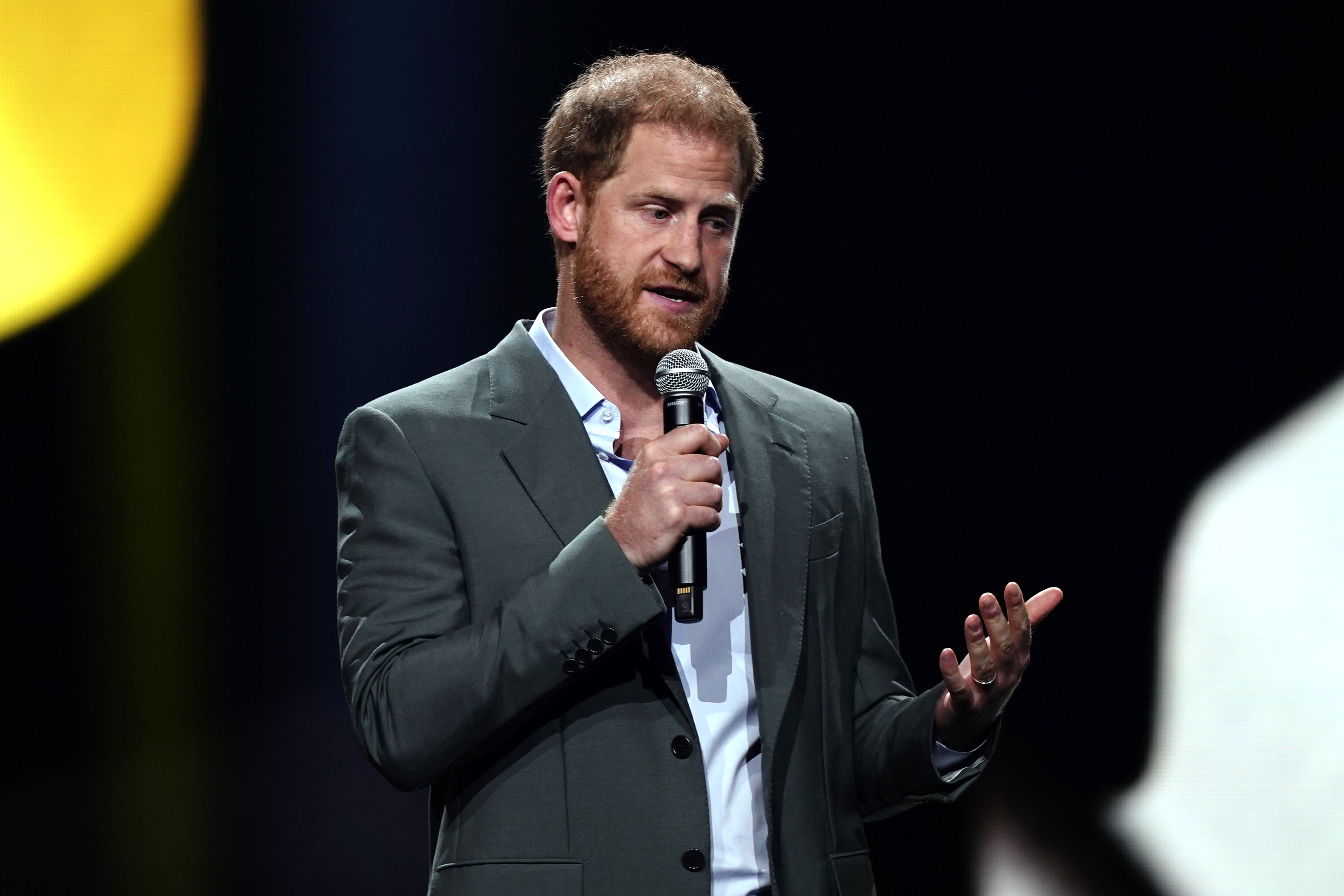
“That was the aim of the Prince Harry case as I understand it and it was certainly my original aim,” he said. “We need leadership from the Prime Minister. If a government is there for anything, particularly a Labour government, it is to protect the public from the abuses of criminality by big corporations.”
Mr Grant criticised Rebekah Brooks, chief executive of NGN, who is a former editor of The Sun.
“The people who were giving the orders are still there in positions of great power – in fact the CEO of NGN was editor of The Sun at the time when, as they have now admitted, it was indulging in criminality.”
Mr Grant said that he and other members of the ‘Hacked Off’ group who have campaigned for tougher curbs on press abuses did not think sufficient action had been taken to stop it happening again or to hold those responsible to account.
”We do not think it is job done by any means,” he said.
NGN has denied the allegations but issued an apology to Harry as the settlement was announced on Wednesday.
The statement said: “NGN offers a full and unequivocal apology to the Duke of Sussex for the serious intrusion by The Sun between 1996 and 2011 into his private life, including incidents of unlawful activities carried out by private investigators working for The Sun.
“NGN also offers a full and unequivocal apology to the Duke of Sussex for the phone hacking, surveillance and misuse of private information by journalists and private investigators instructed by them at the News of the World.
“NGN further apologises to the Duke for the impact on him of the extensive coverage and serious intrusion into his private life as well as the private life of Diana, Princess of Wales, his late mother, in particular during his younger years.
“We acknowledge and apologise for the distress caused to the Duke, and the damage inflicted on relationships, friendships and family, and have agreed to pay him substantial damages.”
NewsBeat
Tory pact with Farage ‘would be unassailable’ warns pollster with 3-way split at top

A leading pollster has warned that if Nigel Farage’s Reform UK and the Tories were to form a pact they would be “unassailable” at the next election based on current surveys.
Techne UK’s chief executive Michela Morizzo made her comment as the company’s latest weekly tracker poll for The Independent had close to a three-way split at the top with Labour on 25 per cent (down 1), just one point ahead of the Tories (down 1) and Reform UK (up 1) both on 24 per cent.
It meant that the combined centre right vote in the UK is 48 per cent, which if brought together would reset British politics.
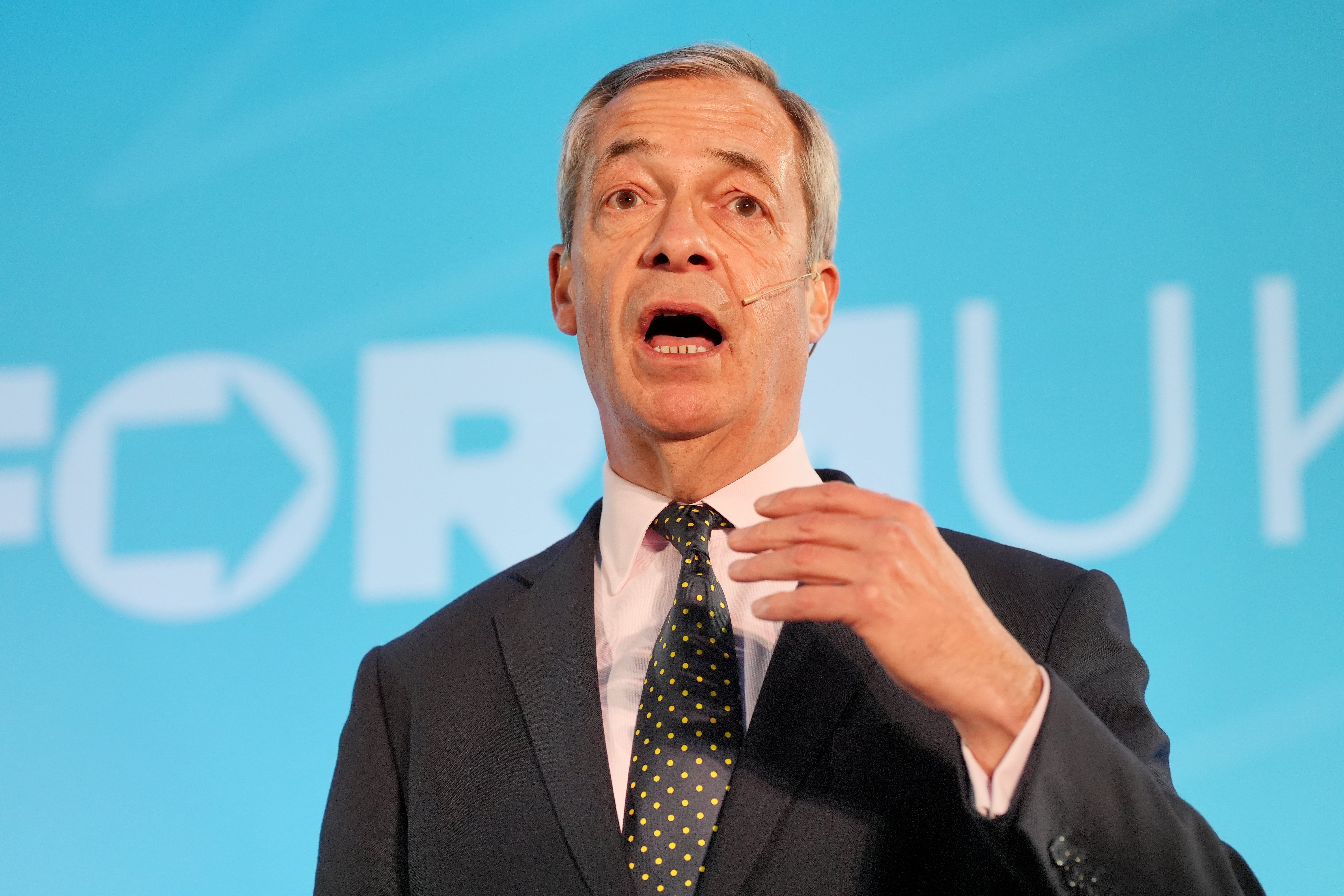
Meanwhile, the Lib Dems were also up one to 13 per cent while the Greens remained level on 7 per cent.
Ms Morizzo’s observations came less than 24 hours after Reform UK’s former deputy leader Ben Habib became the first senior figure associated with the party to reveal that Mr Farage’s plan has always been to force a merger or pact with the Tories.
He told a podcast with economist Mark Littlewood for Popular Conservatism (Popcon), that Mr Farage’s strategy was to have “a strong negotiating hand” by 2028.
He said: “Nigel’s aim is to set up the best possible negotiating position he can between now and 2028 for the Conservative Party. Take as many Conservative MPs, grassroots, members, candidates, councillors, whatever. Weaken the tory party as much as he possibly can, get to 2028 and then he will try and do a deal. If he succeeds and gets very strong he will do that deal from a position of strength.”
Privately allies of Mr Farage have also told The Independent he wants to “engineer a reverse takeover” of the Tories with Reform UK.
The latest Techne findings have revealed that Reform UK is picking up a lot of support from other parties. This includes more than one in four (26 per cent) Tory voters from the 2024 election, and one in seven (14 per cent) of Lib Dem voters from the election.
Ms Morizzo described the collapse in Labour’s support just seven months after being elected as almost unprecedented.
She said: “The Labour Party decline continues this week with Sir Keir Starmer’s party losing another point in national vote share dropping down to just 25 per cent. This in itself is an almost unheard of low polling share for a governing party, particularly as it has only held power for just seven months.
“Once again this highlights that Kemi Badenoch is still struggling to give her party a strong and well defined vision. Further to this it is once again Reform UK who are growing in national vote share to 24 per cent. This is now truly a three-way split for these three parties.”
However, she added: “Finally one must also note that the centre right of the Conservatives and Reform UK if placed together hold an unassailable 48 per cent. What will this scenario lead to? Only time will tell.”
NewsBeat
Derby jobs boosted by £9bn nuclear submarine deal
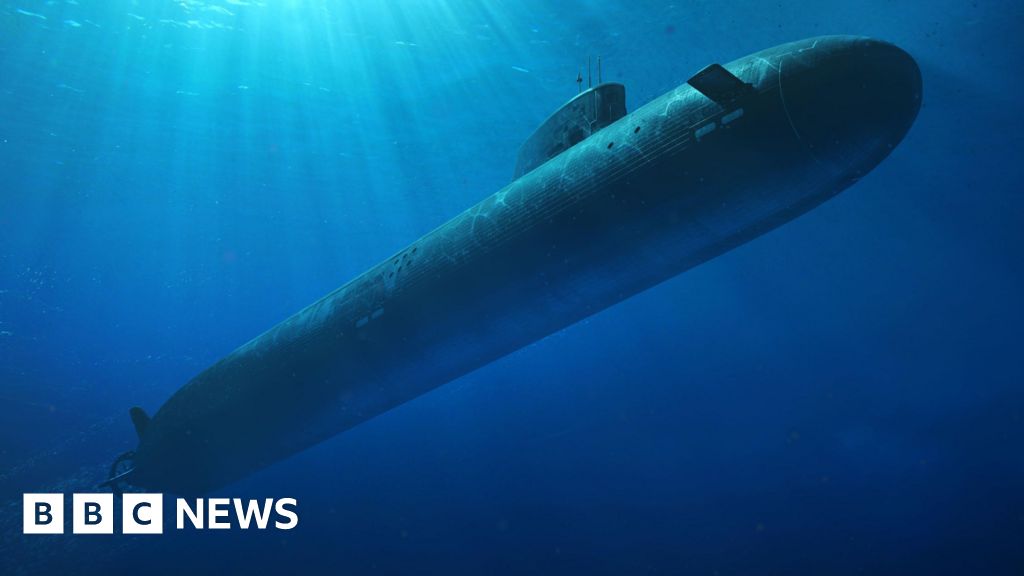
BBC News, East Midlands
 BAE
BAEA £9bn deal for nuclear submarine reactors has been agreed between the Ministry of Defence and Rolls-Royce – the biggest ever between the two.
Defence Secretary John Healey will announce the agreement on Friday during a visit to the firm’s nuclear reactor production facility in Derby.
The eight-year contract, called Unity, is designed to make the design, manufacture and support services for reactors more efficient and environmentally friendly.
It is hoped it will create more than 1,000 UK jobs and safeguard 4,000 other roles.
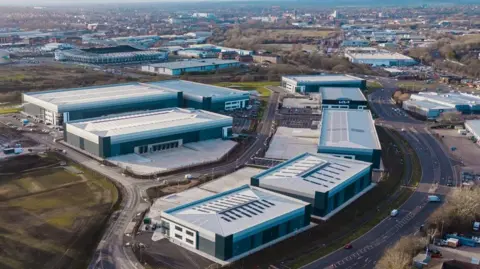 Marketing Derby
Marketing DerbyThe government said the agreement would streamline previous contracts and incentives, and provide more efficient delivery, leading to savings of £400m.
As well as providing support to the current UK Royal Navy submarine fleet, Unity includes the build and commission of new Dreadnought Class submarines and the beginning of contracts for the new Aukus defence alliance.
In March 2023, it was announced Rolls-Royce would provide the reactors for the new fleet of nuclear submarines in a defence agreement between the UK, US and Australia.
The submarines will be built in Britain and Australia but use technology from all three countries.
The company opened a new Nuclear Skills Academy in Derby in 2022, designed to provide 200 apprenticeships each year for at least a decade.
‘Engine for growth’
Mr Healey will use the visit to highlight the government’s “triple-lock” on the nuclear deterrent, which includes building four new nuclear submarines in Barrow-in-Furness in Cumbria, maintaining the UK’s continuous at sea nuclear deterrent and delivering all future upgrades needed.
He said: “This investment in Britain’s defence will deliver a long-term boost to British business, jobs and national security.
“In line with our Plan for Change, this deal with Rolls-Royce, a historic British success story, will support high-skilled UK jobs, who equip the thousands of submariners that keep us all safe.
“We are showing defence can be an engine for growth, while also driving better value for taxpayer money.”
Steve Carlier, president of Rolls-Royce Submarines, said: “We’re delighted to announce the Unity contract, which confirms our commitment to the Royal Navy and the Defence Nuclear Enterprise.
“This long-term contract enables us to invest in the right skills, equipment and facilities to play our part in protecting UK interests at home and overseas.”
Rolls-Royce Submarines is already doubling the size of its Raynesway site and has recently started moving into specially built warehouses in Pride Park.
NewsBeat
Australians react to smell of plant in bloom
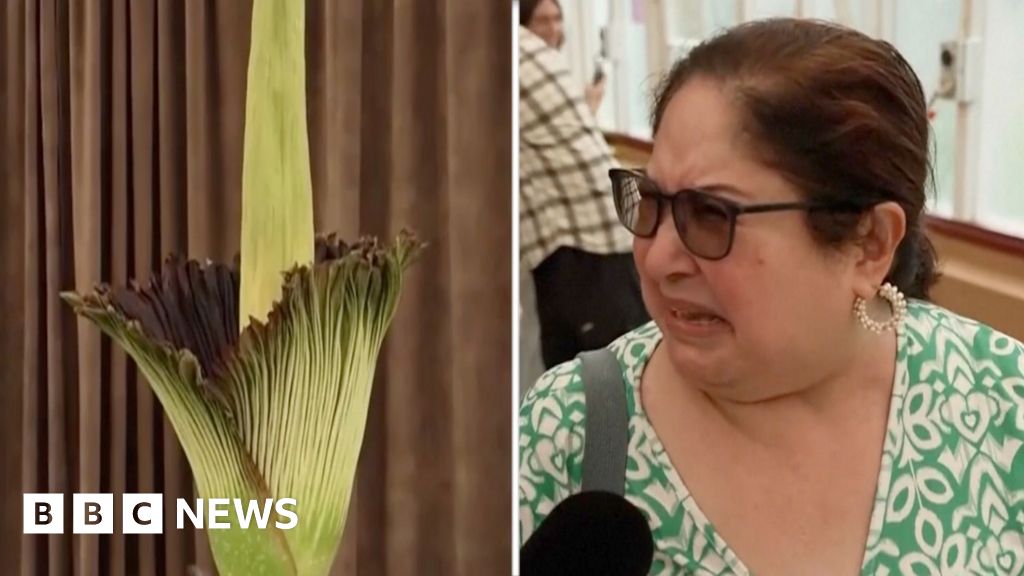
Almost 20,000 people have visited Sydney’s Botanic Gardens to catch a whiff of an endangered plant known as the “corpse flower” as it bloomed.
Dubbed Putricia, the titan arum plant emits a putrid smell likened to “something rotting” or “hot garbage” for 24 hours after blooming.
The smell is the result of a chemical production that happens in the plant to attract pollinators.
The endangered flower – native to Sumatra, Indonesia – only blooms every 7-10 years in the wild. There are thought to be fewer than 1,000 plants globally, including those in cultivation.
NewsBeat
Record winds of 114mph recorded as Storm Eowyn hits the UK and Ireland | UK News

A record wind speed of 114mph has been recorded in Ireland as Storm Eowyn causes widespread disruption on both sides of the Irish Sea.
Red warnings for wind cover the entirety of Ireland and parts of Scotland as the storm brings staggering winds that pose a danger to life.
Trains and flights across the UK face cancellation or disruption on Friday, while schools in Northern Ireland and central and southern Scotland have been urged to shut.
Follow the latest updates on Storm Eowyn
An “unprecedented” number of homes in Ireland have already lost power, with electricity provider ESB Networks telling Sky News the storm had affected 560,000 homes, farms and businesses by 6am – a huge number so early on in this weather event.
In Northern Ireland, more than 93,000 homes and businesses are currently without power, NIE Networks has said, as the storm was causing “widespread damage” to the electricity network.
A statement said: “We anticipate we will begin assessing the damage to the network after 2pm once the red weather warning has been lifted.”
In Scotland, Tesco has announced the closure of its stores in the red danger to life zone covering millions of people across Glasgow and Edinburgh.
Besides the red wind warnings, yellow ones are in place for the whole of the UK, while for northern England and northwest Wales an amber warning for wind from 6am until 9pm is in place.
A yellow rain warning is in place for the coasts in the south of England and Wales till 9am.
A string of public authorities have issued statements warning the public to travel only if absolutely necessary.
Around 4.5 million people in parts of Northern Ireland and Scotland were sent an emergency alert on their mobile phones on Thursday evening.
Multiple flights at airports in Glasgow, Edinburgh, Manchester, Newcastle, Liverpool and Dublin were cancelled.
National Rail has said a “do not travel message has been issued from multiple train operators” as it advised passengers to check for travel advice before travelling.
Some health services have also been suspended, with NHS Lothian cancelling all routine, non-urgent planned procedures on Friday and postponing the majority of hospital outpatient appointments to protect patients and staff.
NHS Lanarkshire has also postponed all non-urgent appointments in hospital and community settings.
This breaking news story is being updated and more details will be published shortly.
Please refresh the page for the fullest version.
You can receive Breaking News alerts on a smartphone or tablet via the Sky News App. You can also follow @SkyNews on X or subscribe to our YouTube channel to keep up with the latest news.
NewsBeat
MP abuse worse than in Jo Cox era, says sister Kim Leadbeater
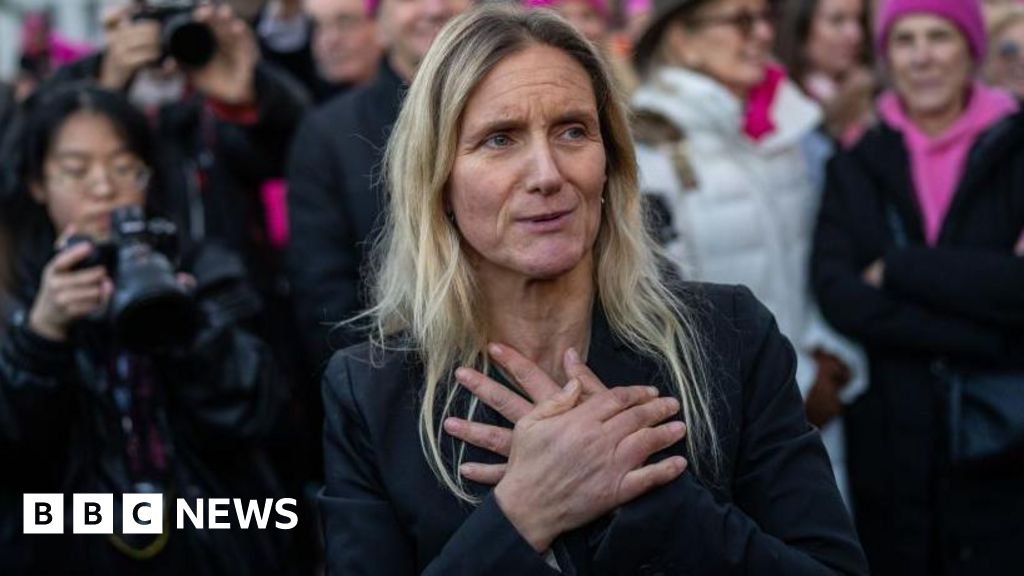
Kim Leadbeater, the sister of murdered MP Jo Cox, has said MPs now face more severe abuse than when her sister was killed.
Cox was murdered in her constituency of Batley and Spen by a terrorist in the run-up to the 2016 Brexit referendum.
Despite calls for change following the murder, Leadbeater said there had been an erosion in people’s ability to “disagree well”.
Speaking to Nick Robinson’s Political Thinking podcast, she argued “the level of abuse and nastiness” in political debate was “worse than ever”.
Leadbeater, now Labour MP for her late sister’s constituency, said proposing her bill to legalise assisted dying had exposed her to a level of abuse she had never endured before.
“I think we can have a civilised, respectful politics, and we can still disagree well and robustly and have proper passionate debate,” Leadbeater said.
“But I just think sometimes we have lost that balance of disagreeing well and having that debate.”
“Then it descends into personal insults, threats, abuse, intimidation – and that’s when I worry.”
Talking about sending supportive messages to her sister in the days before her death, Leadbeater said: “There was a level of abuse and there was a level of nastiness in politics at that time – nowhere near like it is now.
“I remember Jo saying to me ‘I need to get a thicker skin’.
“And I pushed back and said ‘No you don’t. You need to be you because that makes you the brilliant individual that you are, and it makes you the brilliant MP that you are.’
“And do you know what’s really sad, Nick? I actually have that conversation with colleagues now on a daily basis.
“Generally female colleagues, but colleagues across the political spectrum, because the level of abuse and nastiness now is, I would say, worse than ever.”
MPs are currently examining Leadbeater’s Terminally Ill Adults (End of Life) Bill, which would grant people in certain circumstances the right to seek help to end their own life.
Asked by Nick Robinson if proposing the bill had exposed her to a level of abuse she had never previously lived through, Leadbeater said: “Yeah, absolutely.
“I kind of knew it would because I know what a serious issue it is, and I know how strongly people feel about it.
“There are people on the extremes of the debate, people who do not want to see any version of a change in the law, and there are people on the other extreme of the debate who would want a much broader law.
“Sadly, that has led to more abuse than I’ve probably had on anything.
“The abuse is one thing, but it’s when people say things that are not true that I really struggle with.
“The misinformation and the disinformation aspect of it – and the fact that a lot of that takes place on social media where there’s no room for a nuanced debate.”
But Leadbeater said she understood the “passion” around the debate and vowed to “continue to work as hard as I can to make sure that the genuine concerns that are there are considered” as the bill went through Parliament.
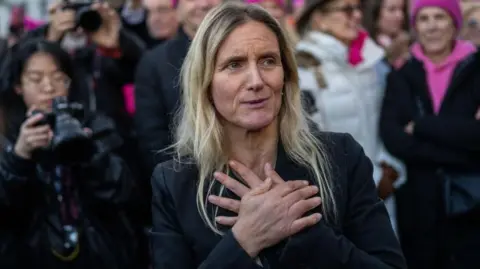 Getty Images
Getty ImagesIn November, MPs backed Leadbeater’s bill to legalise assisted dying in England and Wales by 330 to 275 in a free vote – meaning MPs were allowed to vote with their conscience, rather than following party orders.
It was the first Commons vote on the issue in nearly a decade and paved the way to a monumental shift in the law.
Leadbeater said she was “under no illusion how big a deal this is”.
“We will take oral evidence from over 50 witnesses, which is highly, highly unusual for a private members bill,” she said.
This week, the first stages of line-by-line scrutiny of the bill sparked heated debate, with accusations of bias towards pro-assisted dying voices.
But Leadbeater argued she had taken “a really open approach” to the bill, welcoming amendments.
“It is upsetting and disappointing sometimes to people who are suggesting otherwise – because we’ve got to get this right,” she said.
“It is not just about passing the law, it’s about passing good law that achieves what we are trying to achieve but does not create other problems and takes into account everybody’s views.”
The bill’s committee will begin its first oral evidence session on 28 January.
There are still many months of parliamentary activity ahead, and the bill must pass votes in both the Commons and Lords before the proposed changes can become law.
-

 Fashion8 years ago
Fashion8 years agoThese ’90s fashion trends are making a comeback in 2025
-

 Entertainment8 years ago
Entertainment8 years agoThe Season 9 ‘ Game of Thrones’ is here.
-

 Fashion8 years ago
Fashion8 years ago9 spring/summer 2025 fashion trends to know for next season
-

 Entertainment8 years ago
Entertainment8 years agoThe old and New Edition cast comes together to perform You’re Not My Kind of Girl.
-

 Sports8 years ago
Sports8 years agoEthical Hacker: “I’ll Show You Why Google Has Just Shut Down Their Quantum Chip”
-
Business8 years ago
Uber and Lyft are finally available in all of New York State
-
Entertainment8 years ago
Disney’s live-action Aladdin finally finds its stars
-
Sports8 years ago
Steph Curry finally got the contract he deserves from the Warriors
-
Entertainment8 years ago
Mod turns ‘Counter-Strike’ into a ‘Tekken’ clone with fighting chickens
-
Fashion8 years ago
Your comprehensive guide to this fall’s biggest trends



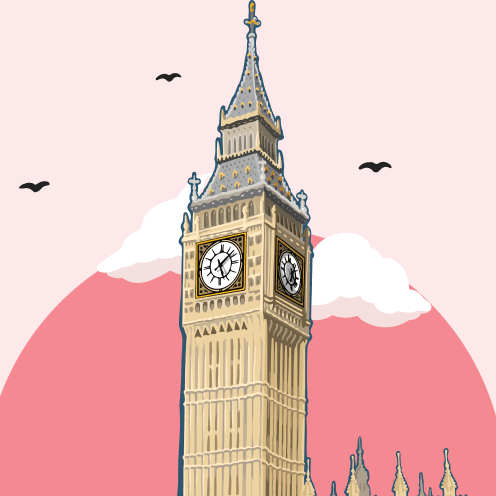
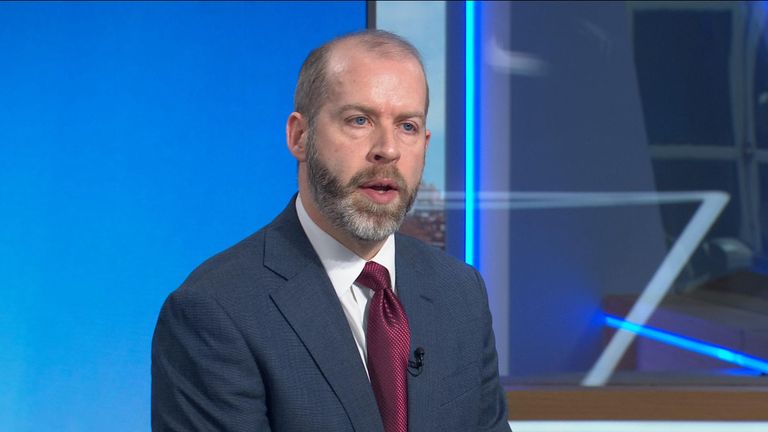






You must be logged in to post a comment Login